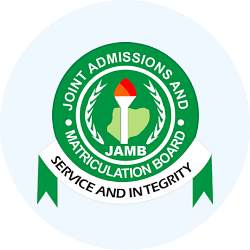JAMB Exam > JAMB Videos > Biology for JAMB > Anatomy of Human Digestive System
Anatomy of Human Digestive System Video Lecture | Biology for JAMB
|
224 videos|175 docs|151 tests
|
FAQs on Anatomy of Human Digestive System Video Lecture - Biology for JAMB
| 1. What are the main organs involved in the human digestive system? |  |
Ans. The main organs involved in the human digestive system are the mouth, esophagus, stomach, small intestine, large intestine, rectum, and anus. These organs work together to break down food into smaller particles, absorb nutrients, and eliminate waste.
| 2. How does the digestive system break down food? |  |
Ans. The digestive system breaks down food through a process called digestion. It starts in the mouth, where food is chewed and mixed with saliva. Then, it travels down the esophagus into the stomach, where it is further broken down by stomach acids. From the stomach, the partially digested food enters the small intestine, where enzymes and other substances are released to break it down even further. Finally, in the large intestine, water and electrolytes are absorbed, and waste material is formed.
| 3. What is the role of enzymes in the digestive system? |  |
Ans. Enzymes play a crucial role in the digestive system by helping to break down food into smaller molecules that can be easily absorbed by the body. Different enzymes are responsible for the digestion of different types of nutrients, such as carbohydrates, proteins, and fats. For example, amylase breaks down carbohydrates, proteases break down proteins, and lipases break down fats.
| 4. How does the small intestine absorb nutrients? |  |
Ans. The small intestine is the primary site for nutrient absorption in the digestive system. Its inner lining is covered with tiny finger-like projections called villi, which increase the surface area available for absorption. Nutrients, such as glucose, amino acids, and fatty acids, are absorbed into the bloodstream through the villi. This absorption is facilitated by specialized cells in the villi called enterocytes, which have microvilli on their surface to further increase the surface area for absorption.
| 5. What are the functions of the large intestine in the digestive system? |  |
Ans. The large intestine, also known as the colon, has several important functions in the digestive system. It absorbs water and electrolytes from the remaining undigested food, forming solid waste material called feces. It also houses a large number of beneficial bacteria that help in the fermentation and breakdown of certain undigested carbohydrates. Additionally, the large intestine helps in the storage and elimination of feces through the rectum and anus.
|
224 videos|175 docs|151 tests
|

Video Timeline


|
Explore Courses for JAMB exam
|

|
Signup for Free!
Signup to see your scores go up within 7 days! Learn & Practice with 1000+ FREE Notes, Videos & Tests.
Related Searches


















